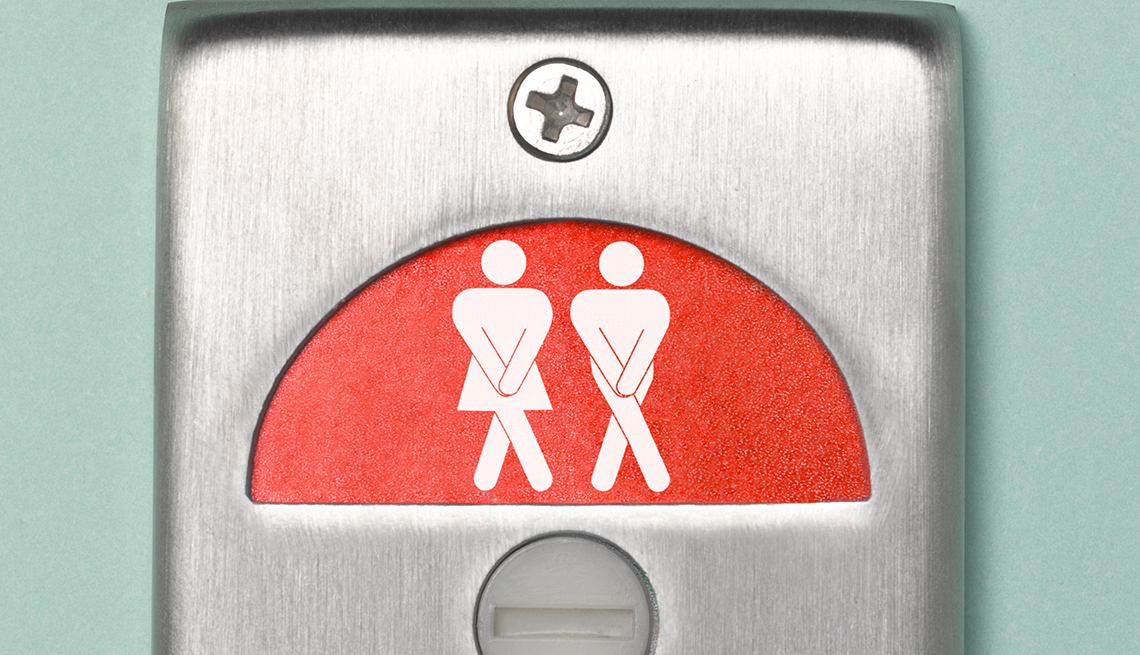
9 strategies to stop peeing so much
- Select a language for the TTS:
- UK English Female
- UK English Male
- US English Female
- US English Male
- Australian Female
- Australian Male
- Language selected: (auto detect) - EN
Play all audios:

Do you find yourself running to the bathroom all day long? Or waking up several times at night to pee? If you go more than eight times a day and more than once at night, you probably have
what doctors call frequent urination. It’s a common condition among older adults, although it can affect people of all ages. Many people who have frequent urination also have overactive
bladder, a condition in which you get an overwhelming urge to go that comes on suddenly and is difficult to control. Urine may leak out if you don’t get to the bathroom fast enough. As many
as 30 percent of men and 40 percent of women experience it at least sometimes, according to the Urology Care Foundation. In and of itself, frequent urination isn’t harmful. But it can be
embarrassing and annoying, especially if that gotta-go feeling is keeping you from activities you enjoy such as taking long trips or hiking. And if you wake up a lot to pee during the night,
disturbed sleep has been linked to health conditions including diabetes, heart disease and dementia. NOT A NORMAL PART OF AGING Many older adults assume that peeing all the time is a normal
part of aging, but that’s not the case, says Elizabeth Braxton, a urogynecologist with Novant Health Pelvic Health Center in Greensboro, North Carolina. “It’s definitely more common as you
age, but it’s not normal,” she says. If you feel like you are urinating too frequently — or if you’re always thinking about where the nearest bathroom is — you should talk to your doctor
about potential causes, Braxton says. Frequent urination can be a sign of a more serious condition, such as diabetes, a urinary tract infection, interstitial cystitis or an enlarged
prostate. It can also be a side effect of some medications, particularly diuretics. Sometimes simply changing how and when you take your medications can make a big difference, Braxton says.
Even if there is no underlying condition causing your pee problem, that doesn’t mean you have to live with it. Taking the following steps can help reduce your need to go all the time. 1.
DRINK WATER WISELY If you drink a lot during the day, cutting back can significantly reduce urination frequency. Many people guzzle the oft-recommended eight glasses of water a day, but
there’s no science behind that number, says Karyn Eilber, a board-certified urologist at Cedars-Sinai Medical Center in Los Angeles. “If you have a large person working outside, sweating,
they probably need more than that,” Eilber says. “But a petite person who sits at a desk all day probably needs much less than that. I spend half my day telling people they are drinking too
much fluid.” However, if you don’t drink enough fluids, that, too, can trigger more trips to the bathroom, says Aleece Fosnight, a board-certified physician assistant specializing in urology
at Aeroflow Urology near Asheville, North Carolina. “It sounds counterintuitive, but urine is made up of waste products, and it’s very irritating to the body,” Fosnight explains. “The more
concentrated your urine is, the more irritating it is, and that gives you the urge to go.” So, how much should you drink? It’s best to let your thirst guide you, but aim for a minimum of 40
ounces of fluid a day — that’s about five glasses. Your urine color should be light to medium yellow.
